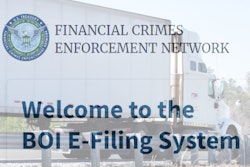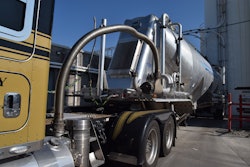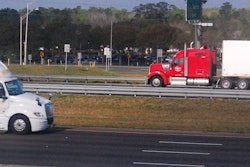Sophisticated identity theft schemes aimed at trucking companies as well as all manner of Americans, including individual operators, have been on the rise in recent years. it’s important to understand how to protect your identity as an owner-operator.
Truck drivers are vulnerable not only to financial loss and a trashed credit score from identity theft, but also to legal complications that can threaten their livelihood. They’re also more at risk of having personal data compromised than most people because of constant traveling and other factors.
There are dozens of ways people can have their identities compromised, but here are some key areas where truckers are particularly vulnerable:
Driver’s license. One routine practice that puts drivers at risk is having to show their driver’s license to shippers and receivers, who in some cases even copy it. Keep track of where you have shared your license information. If a shipper or receiver makes a copy, keep a record of the name of the employee who copied it, the date and the company name. You also should try to watch how your license is handled since it could be scanned quickly with a smartphone app. With your license information, thieves have all they need to Google you and collect more information.

Pumps and ATMs. Skimming devices, installed at fuel pumps and ATMs, can be used to collect credit and debit card information. If you notice the keyboard or card slot appears to be ill-fitting, or if it’s difficult to scan your card’s stripe, it’s likely a skimming device. Two precautions are to avoid fuel pumps that can’t be seen easily by truck stop personnel and to avoid ATMs in low-traffic locations.
Additionally, you should cover any numbers you enter on a keyboard at a pump or ATM. Even if thieves aren’t standing close by to watch, they can use small hidden cameras to collect information.
Mail. Drivers who don’t return home nightly should recruit someone to pick up their mail daily or rent a post office box. To be extra cautious about theft of outgoing mail with personal data, deposit it in U.S. Postal Service collection boxes instead of your home mailbox. Likewise, shred papers with sensitive information before leaving them for garbage pickup.
Wi-Fi networks. Be wary of using public Wi-Fi at truck stops and elsewhere to check bank accounts and other personal data. A crook on the same Wi-Fi network could collect that sensitive information.
Email. Phishing schemes conducted through email have hit brokerage offices, motor carriers and all manner of other freight-related businesses, likewise the federal government itself. In 2024, the threat continued to increase, with scammers using access to public motor carrier data to email carriers pretending to be the Federal Motor Carrier Safety Administration and requesting information and contact for a safety audit in progress. The emails were crafted be as convincingly official as possible, yet FMCSA warned the industry that it would never contact carriers this way and request they log into a website and provide their details.
That's what the crooks wanted carriers to do, thus collecting that input information to steal federal login credentials and other information like certificates of insurance issued by independents' and other carriers' insurance companies. With that information, crooks could then change contact and other information within the carrier's profile to very effectively impersonate them in load payment theft schemes, even theft of full truckloads of freight.
[Related: Would-be FMCSA registration hackers claim to fight fraud in latest phishing expedition]
Cargo theft. As noted, business identity theft also can be used for cargo theft that could derail an owner-operator’s career. Suppose a thief with commercial driving skills collects enough information on another driver to create a fake ID and pose as that driver. They then could go out and take a couple loads or get paid for a load and not deliver it. At that point, the victim’s whole business has been compromised. An instance of cargo theft conducted in this manner in 2024 even led to a brief stint in jail for an owner-operator and, as of this writing, still-ongoing legal maneuvering to clear his name.
Certificate of insurance. Someone claiming to be a broker might call your insurance agent and request your COI, even if you haven’t been in contact with the supposed broker. Your COI contains your address, company name, insurance policy number, vehicle identification number, insurance carrier, insurance agency information and more. Insurance fraudsters and insurance stalkers can both use COIs to determine if it’s worth their time to attempt an insurance claim or lawsuit against you.
Independent owner-operators with authority should verify with any insurance agent you work with that they will not give out your COI unless you request it yourself. Remove all “additional insureds” from your policy, as they could potentially request COIs be given to third parties without your knowledge.
Finally, lock all your credit reports to prevent creditors from receiving a credit report for a would-be identity thief posing as you.
The following early-2025 edition of the Overdrive Radio podcast detailed some of the growing threats for owner-operators and other small carriers.
Read next: How to choose a business structure that works best for your operation










